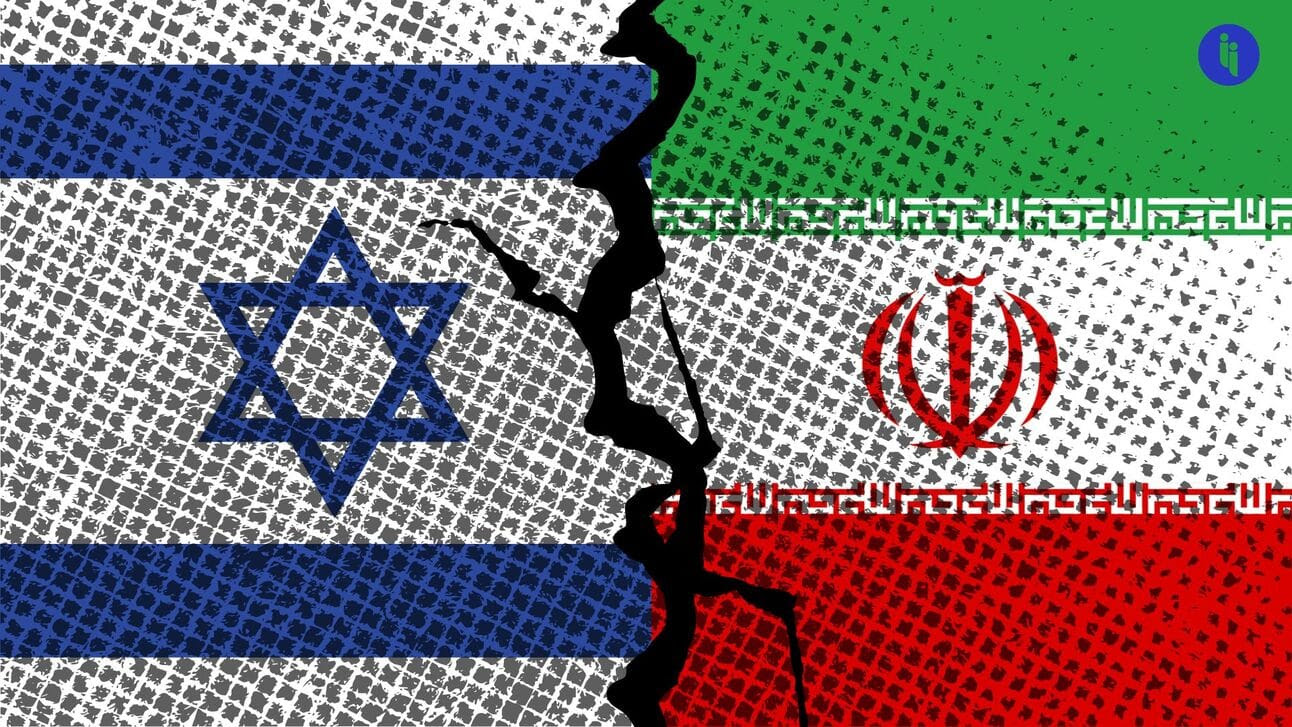Iran has vowed to retaliate after accusing Israel of carrying out an airstrike on an Iranian embassy complex in Damascus, Syria, on Monday. The explosion levelled an Iranian consular facility and killed at least 13 people, including three senior commanders from Iran’s Islamic Revolutionary Guard Corps (IRGC).
Israel hasn’t officially claimed the attack, though its officials are now quietly confirming the obvious, while denying the building (which Iran says housed a consular section and the ambassador’s residence) held diplomatic status.
It’s part of a yearslong shadow war between the two, including cyberattacks, assassinations, proxy militias, and airstrikes.
Stay on top of your world from inside your inbox.
Subscribe for free today and receive way much more insights.
Trusted by 134,000+ subscribers
No spam. No noise. Unsubscribe any time.
But this latest hit looks like a real escalation for three main reasons.
- The location
Breaching (let alone flattening) a foreign diplomatic premises is clearly a big deal. Just ask the British authorities who waited seven years before executing (with Ecuador’s consent) an arrest warrant on Julian Assange; or the Turkish authorities who waited two weeks before entering (with Riyadh’s consent) the Saudi consulate where a US-based journalist had just been assassinated.
Bigness of the deal aside, Israeli and other sources are arguing this particular Iranian complex had lost any diplomatic status because of who was there at the time, and what exactly they were doing…
- The targets
The strike targeted a war meeting of Iranian generals and spies with leaders of Palestinian Islamic Jihad, a Gaza-based group armed and funded by Iran. The resulting dead included multiple players like Brig. General Mohamad Reza Zahedi, a senior commander in the Quds Force, which runs the IRGC’s foreign proxy and intelligence operations.
Zahedi was under international sanctions and is now the highest-ranking Iranian official to be killed since the 2020 US assassination of Qassem Suleimani.
- The context
Israel is already in varying degrees of armed conflict with Hamas in Gaza, Hezbollah in Lebanon, and the Houthis in Yemen (all Iran-backed). And while Iran has been making noises that it’s not seeking direct war, the world has consistently feared the possibility of a broader regional conflict breaking out.
So given the real risk of escalation here, why pull the trigger?
That’s probably a question only Israel’s top brass can answer, though there are several factors that could influence such a decision:
- Pinpointing and then hitting such a sensitive meeting on foreign soil is a military-intelligence flex for Israel, which has long relied on deterrence in a hostile neighbourhood
- That kind of flex also burnishes the image of those in Israel blamed for failing to foresee and forestall October’s Hamas attacks
- It also ‘raises the costs’ on Iran for its strategy of targeting Israel via armed proxy groups (including in a drone strike just hours earlier)
- Israel probably assumes Iran will (again) only be willing or able to offer relatively limited responses, further eroding Iran’s own deterrence, and
- Israel is likely also ‘testing’ Iran, to build a clearer picture of where its lines are and how its leaders respond to them being crossed.
So, what now?
True to form, Iran is vowing revenge, with Supreme Leader Ayatollah Ali Khamenei pledging to “make them regret this crime”. And right on cue, Hezbollah has also declared the attack “will certainly not pass without the enemy receiving punishment and revenge”.
And will they carry out this threat? Iran has previously claimed hits on Israeli intelligence outposts in the region. With its domestic and regional credibility now on the line, it’ll feel pressure to hit Israel closer to home.
INTRIGUE’S TAKE
The U.S. would ordinarily have been in the loop for something like this, but it’s moved quickly to declare it played no role and had no heads-up. Whether this is because it was cut out or chose to distance itself, it’s a solid reflection of where US-Israel ties are at right now. Iran is still blaming the US either way.
And speaking of Iran – sure, its generals weren’t in the Damascus consular section to help issue passports to fellow citizens. But that’s not really in dispute here.
The broader issue is that the decision to flatten a part of Iran’s embassy (rather than, say, hit a motorcade) shifts the rules of the game again. It opens the door for an adversary to argue that any diplomatic premises with a military presence is now fair game.
And many countries (including Israel) should feel uncomfortable about that.
Also worth noting:







